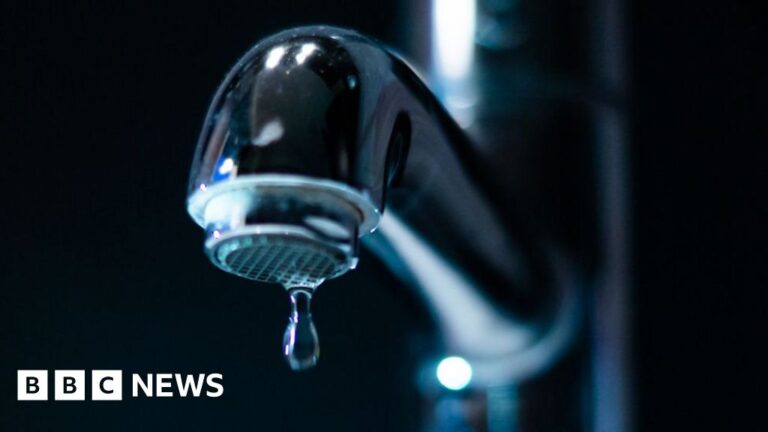Concern Over the UK’s AI Ambitions Leading to Water Shortages
The United Kingdom is rapidly emerging as a global leader in artificial intelligence (AI), with the government committing substantial investment towards AI research and innovation. While this ambition promises to transform industries and enhance productivity, concerns are growing that this focus on technology could inadvertently lead to water shortages across the nation. With the UK’s average annual rainfall diminishing, AI-driven initiatives might pivot attention away from critical environmental management.

According to the Environment Agency, the UK has seen a dramatic reduction in its average rainfall over the past few decades. This is particularly evident in the southeast region, where many key cities, including London, are experiencing an increase in water demand due to population growth and economic expansion. Insights from the UK Water Resources Planning Framework reveal that by 2050, water demand could exceed supply by up to 3.4 billion liters per day if current trends continue. This alarming statistic emphasizes the need for immediate and proactive measures.
As AI technologies become increasingly integrated into various sectors, there is a risk that resources, including water, will be further stretched. AI requires substantial computational power, typically provided by data centers that consume extensive amounts of energy and water. A study from the University of Massachusetts Amherst indicates that training a single AI model can emit over 626,000 pounds of carbon dioxide, equivalent to the lifetime emissions of five cars. This consumption pattern raises critical questions about sustainability, particularly when these resources are already under pressure from climate change and population growth.

Moreover, the water used in cooling these massive data centers can significantly deplete local water resources. For instance, Google’s data centers reportedly use 1.5 liters of water for every kilowatt-hour of electricity generated. As these centers proliferate to support AI advancements, the implications for the UK’s already strained water resources could be dire. It’s estimated that the nation has 20% less water available per capita compared to countries such as Spain or Germany, highlighting a growing imbalance between supply and demand.
On top of these infrastructural challenges, the implementation of AI-driven technologies in agriculture, industry, and residential sectors underscores the urgency for a balanced approach. AI can offer insights for efficient water usage and predict patterns of demand, but without careful implementation, it may inadvertently exacerbate existing problems. According to research from the Met Office, climate change is projected to decrease overall rainfall in the UK by as much as 20% by 2050, compounding the water scarcity issues already present.
As the UK directs energy towards its AI aspirations, it remains essential to leverage these technological advancements to address environmental challenges. Integrating AI solutions aimed specifically at water conservation can lead to more sustainable practices. For instance, IBM’s Green Horizon Project is already exploring AI capabilities in managing water distribution in cities, aiming to optimize resource use.
To avoid a water crisis, a coordinated effort between government, industry, and research organizations is needed. Emphasizing sustainable AI practices includes advocating for environmentally friendly data centers, improving infrastructure resilience, and investing in green technologies. Organizations such as WaterAid have highlighted the importance of sustainable water management strategies, and further collaboration with the AI sector may yield innovative solutions for water shortages.
Moreover, public awareness and behavioral change in water usage will play a pivotal role in the UK’s ability to maintain its resources. Campaigns encouraging households and businesses to utilize water-saving technologies can complement AI-driven initiatives. For instance, the Smart Meter program aims to educate customers on their water use, ultimately aiding in conservation efforts.
The relationship between the UK’s AI ambitions and potential water shortages paints a complex picture of opportunity and challenge. Stakeholders must work together to prioritize sustainability in AI development while embracing innovative, data-driven solutions to water management. It is vital to remember that technological advancements should align with environmental conservation efforts to secure the UK’s water future.
In conclusion, while AI may offer the potential to revolutionize various sectors, its unintended consequences can threaten essential resources like water. The UK’s ability to blend technological ambitions with sustainability will ultimately determine whether it can navigate the complex intersection of innovation and resource management. Addressing these concerns early on will help safeguard the country’s precious water resources for future generations.





